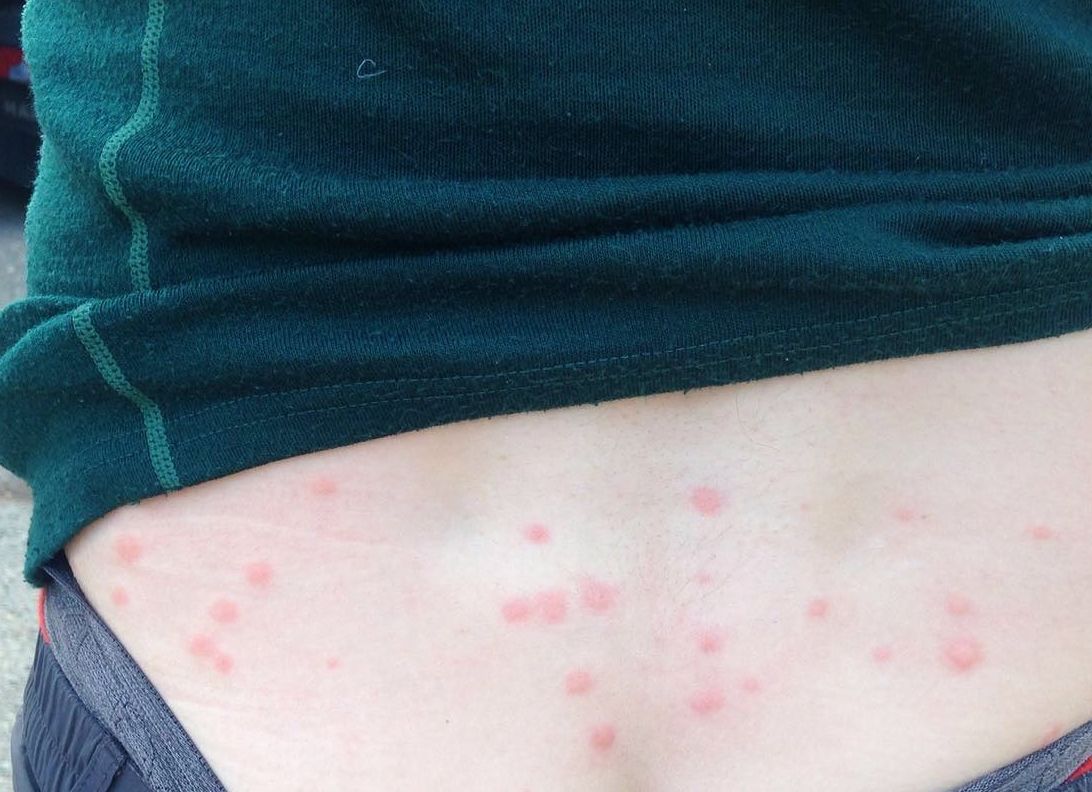I have seen some posts that mention midges and midge spray. I am wild camping in Scotland in August. Should I be worried about them? Is there anything else a part from midge spray I can use to keep them away?
3 Answers
I've been battling the little buggers for half a century. Here's what I've learned.
Take them seriously!
Most of the time they're only a minor irritant, but at their worst they're very nasty. I've twice had to help people in toxic shock from midge attack. Make sure you're prepared.
Know your enemy
They don't like sunlight, so are are more active at dawn and dusk, in shade and on overcast days.
The higher the humidity the more active they become, and they can fly in light rain. They become inactive when humidity falls below 60% or so.
The population falls away rapidly above 700m (2300 ft)or so.
They can't fly in wind speeds above 6mph (10kph), but can still get you on breezy days if you take shelter.
They can't bite through clothing, but they will crawl through any gaps in your defences.
Take avoiding action
Avoid the crowds!: intensity varies from place to place and from season to season. Use the Smidge Midge Forecast to avoid the worst areas - not 100% accurate but still pretty useful.
Cover up: when things get bad, no repellent will keep them all off. Carry a broad-brimmed hat and headnet, some light liner gloves and full-coverage clothing.
Defend your living space: a tent with full insect netting is essential. They can get through mosquito netting - you need the finer midge/noseeum netting. In bad conditions it's impossible to avoid carrying dozens of midges into your tent on your clothing. The easiest way to deal with them is to burn mosquito coils for a few minutes - you can get holders that reduce the fire risk. Alternatively, if you keep covered up the midges will eventually settle in the seams of your tent. Running your fingers along the seams will eliminate most of the problem.
Use insect repellent: DEET is the most effective for most, but quite unpleasant and toxic. So you might consider the alternatives.
Camp on exposed sites: midges can't fly in a breeze, so whenever safe and practical choose exposed sites for your camp.
Personally, during midge season I like to head for the ridges and plateaus and camp high. Though provided you steer clear of the worst areas you shouldn't have too many problems, even in the valleys. But prepare for the worst or you could end up in trouble.
Most of your question is covered in When is the midge season in Scotland?. But I'll answer the non-duplicate question:
Is there anything else a part from midge spray I can use to keep them away?
Yes quite a few alternatives, these are covered pretty well in this question. To name a few:
- Lemon Eucalyptus oil
- Avon Skin So Soft (I kid you not!)
- Citronella oil
Now that said, literally THE best insepct repellant is DEET it's nasty horrible stuff but nothing keeps bugs away better. If you want to avoid the midgies (and you will). This is your best bet.
Also buy a mosquito net and take clothing that covers your arms and legs. Tuck everything in. Here is the result of me not tucking my top into my pants one evening:
-
1uh, how nasty. And Avon Skin So Soft seems to be really THE secret tip of the locals :D Commented Jul 21, 2016 at 1:01
You can buy candles that contain citronella. I was pretty sceptical about their effectiveness, but last weekend, we lit two outside the tent and we were able to sit outside relatively unmolested.
Best advice - camp somewhere exposed - midgies can't cope with much more than a gentle breeze.
And for the love of God, take a midge net - they're hot and uncomfortable and you look stupid, but better that than be eaten alive by a swarm whilst you're packing up your tent each morning.

Avon Skin So Softwhich is used by the SAS to keep bugs off that I've used and is very good.